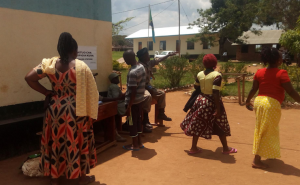Niger halves clinic childbirth blood-loss deaths

Elias Gebrekidan (C) stands next to members of his family who holds his twin nieces Tsion and Roda, 2 months old, who were born during the hostilities, in Wukro, north of Mekele, on March 1, 2021. - The sister of Elias Gebrekidan and mother of the twins needed medical assistance after birth and she could not get it due to the hospital being shut down. Every phase of the four-month-old conflict in Tigray has brought suffering to Wukro, a fast-growing transport hub once best-known for its religious and archaeological sites. Ahead of federal forces' arrival in late November 2020, heavy shelling levelled homes and businesses and sent plumes of dust and smoke rising above near-deserted streets. Since then the town has been heavily patrolled by soldiers, Eritreans at first, now mostly Ethiopians, whose abuses fuel a steady flow of civilian casualties and stoke anger with Nobel Peace Prize-winner Abiy. (Photo by EDUARDO SOTERAS / AFP)
Researchers working with the ministry of health in Niger say they have managed to more than halve the number of women who are dying due to blood loss after giving birth in health facilities.
Blood loss has long been the biggest cause of maternal deaths in Niger and many other developing nations.
Over the last six years the NGO Health and Development Initiative has introduced in Niger a combination of treatments that includes providing health workers with a low-cost medicine.
The findings – published in the medical journal the Lancet – are extremely encouraging.
Out of almost 1.5 million births, the proportion of women bleeding to death in health facilities across Niger fell by well over a half.
The researchers say the initiative can easily be rolled out in other countries and could lead to a dramatic fall in global maternal mortality rates.
By BBC



